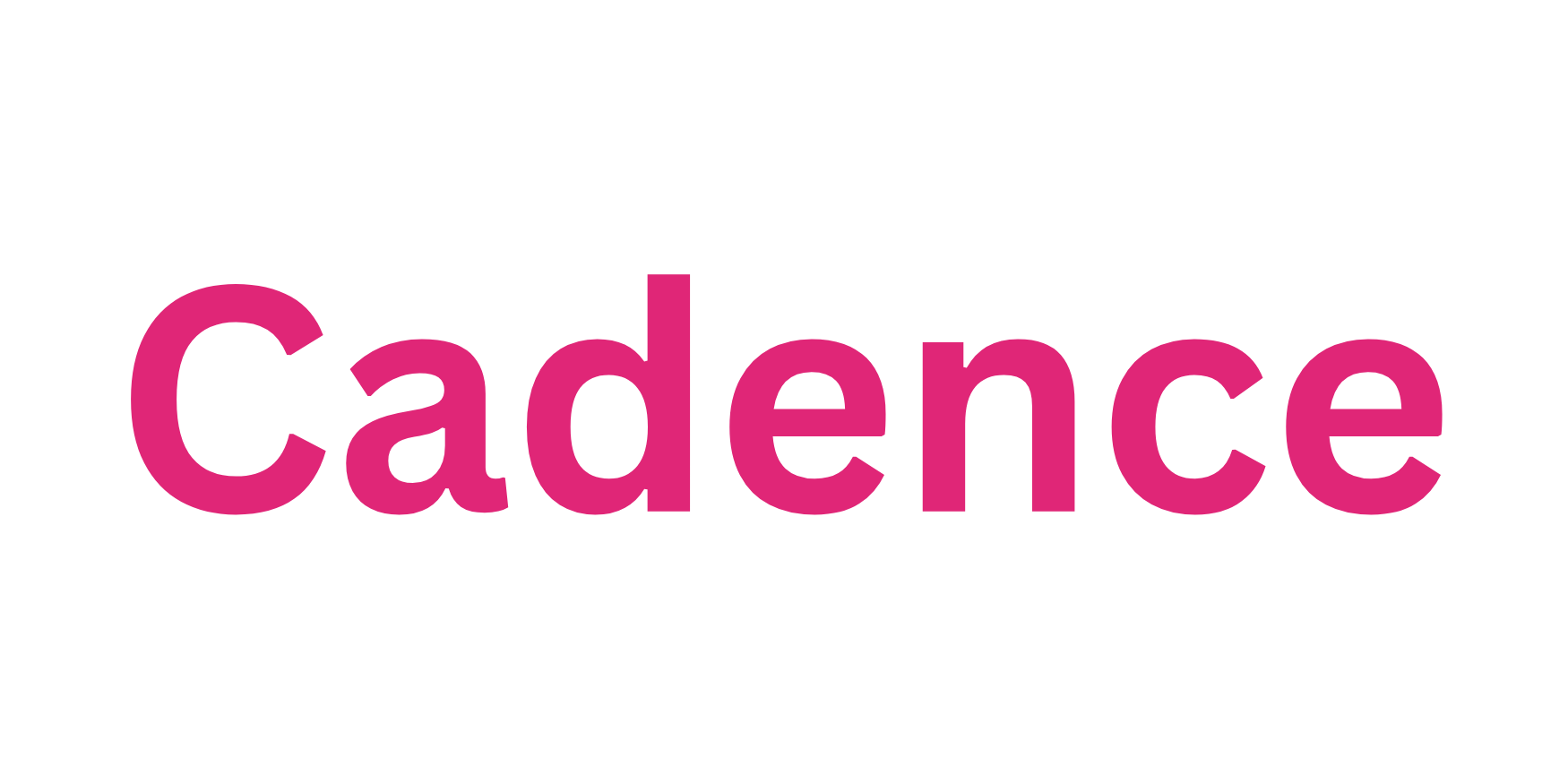
Learning Center
Frequently
Asked Questions
Estate settlement and planning for death comes with
many questions.
We have answers to some of the most frequent ones.
Don’t see your question? Contact us by clicking below.
FAQ
Frequently Asked Questions
What is Cadence and how does it work?
Cadence is an easy-to-use website that provides estate pre-planning and settlement services. Our end-to-end, self-service solution is complemented by Cadence Advisors who can lend expert support to users, whenever they need it. Cadence’s Legacy Planner helps individuals:
Complete the steps to put their affairs in order Gather key information & documents (e.g., related to insurance policies, accounts, utilities, property, the will, POA, etc.)Keep your information up-to-date Plan a secure hand-off to your executor Collaborate with professionals In the event of death, a designated Successor can transfer the information within the Pre-Planner to the Executor Assistant.
Cadence’s Executor Assistant provides executors with:
Personalized task lists for executors Step-by-step instructions for tasks, customized according to location Document auto-filling for speeding up paperwork
On-demand support from Certified Executor Advisors
How does estate planning help with estate settlement?
If you’re like most people, you probably don’t think much about your estate planning until it’s time to make those big decisions about what to do with your assets after death. However, even if the thought of estate planning seems daunting or unnecessary, it can actually help with these decisions.
Estate planning is important because it helps everyone involved in the distribution of your assets after your death, whether they are relatives or friends. Estate planning can help to protect assets from taxes and creditors, as well as provide a plan for the distribution of those assets after your death.
Estate planning is also important because it can save you money. Your heirs will inherit property, but not all of it will be worth as much as the total value of all of your property combined. If you have an estate plan that specifies what will happen to each asset and how much each asset will be worth, then there’s less chance that someone could get stuck with an asset that has no value at all.
Is my information secure in Cadence?
We take your privacy very seriously and we are committed to safeguarding personal information in our custody and control.
You can be assured that your personal information will not be shared with anyone without your consent.
We use bank-level technical safeguards and follow industry best practices.
Steps we take to keep your information safe, Encrypting data in-transit and at-rest, with AES 256-bit encryption. Using two-factor authentication Using industry-leading, cloud-based hosting services
What is an executor?
An executor is the person who administers a person’s estate upon their death. An executor may also be known as an “estate
representative” or an “administrator.”
The executor is appointed in advance of the death, through the will, and their job is to carry out the deceased person’s wishes based on instructions spelled out in the will. They are responsible for making notifications, filing legal paperwork, closing accounts, paying taxes, ensuring that debts are paid, and distributing the assets (what a person owns) to the intended beneficiaries.
An administrator is appointed by the court to deal with an estate in the following situations:
there is no will the will fails to appoint an executor the executor(s) named are unable to act An administrator will take on the same responsibilities as an executor.
How do I choose an executor?
You should choose an executor that is:
Trustworthy
Detail-oriented
Living reasonably close to you
Somewhat knowledgeable of their responsibilities and duties
Likely to survive you
You can choose a family member or close friend. Alternatively, you can hire an estate professional in the case of a complex estate.
It is a good idea to name a back-up executor in the case that your first choice is unable to accept the role.
People named as an executor have a right to decline the role.
Be sure to have a discussion with family members to advise them of your choice of executor so that there are no surprises.
What is probate?
Probate is a court-supervised process for validating a deceased person’s will and appointing someone to administer the estate or deal with all the assets and debt left behind by the deceased. Once the court determines the will is valid, the court permits the executor to execute the will and administer the estate. When there is no will, the next-of-kin or another individual can apply to be authorized by the court to take on this role. An application for probate may be required in the following circumstances:
There is property solely in the name of the deceased (as examples, a house, cabin, mineral rights, land, etc.)
The bank or other third party has requested it to release the funds
There are minor beneficiaries The deceased owned stocks, bonds, or shares in a public company
“The estate” is the named beneficiary on an insurance policyThere is a lawsuit relating to the estate
Can I skip probate and if so, how?
Probate refers to a court-supervised process for administering an estate and distributing the proceeds of the estate. Letters Probate formally recognizes that a will is valid and that an executor is entitled to deal with the estate.
Applying for probate reduces potential liability and the chance of a claim being brought against the estate or the estate representative. However, probate may not be required in the following situations: There is no property in the estate
Property or accounts are jointly held and transfer directly to the surviving owner The deceased was a First Nations member living on reserve The executor or estate representative does not require access to financial institutions (banks, investments, etc.)The value of the estate is small
What do I do if there’s no will?
If a person dies without a will, they are deemed to have died “intestate.”
Each province/territory/state has its own intestate laws and these laws do not take into account the wishes of the family. If no will is located, the court will appoint an administrator to settle the estate.
If the estate is insolvent (i.e., if it has fewer assets than liabilities), the administrator will be advised to speak with a bankruptcy trustee. Whether there is a will or not, there are still tasks that need to be taken care of, but they could be delayed, made more difficult, or involve extra forms and tasks if there is no will.
Do I need a lawyer to settle an estate?
It is possible to complete a court application and administer the estate without a lawyer.
However, a lawyer may be necessary for large and/or complicated estates. It is recommended to work with a lawyer in the following situations: If there are beneficiaries under the age of 18
If there are disputes or disagreements between beneficiaries
If the estate is large and complicated
If the deceased owned a business
If the deceased owned property outside of the province they lived in
If there is a farm or mineral rights in the estate
If there are assets that are difficult to appraise or sell
If the estate cannot cover all debts
Cadence does not offer legal advice but we can refer you to a lawyer upon request.
To learn more about Lawyers and Estates, follow this link.
What is a Certified Executor Advisor?
A Certified Executor Advisor is a designation offered by CICEA which gives people a general understanding of estate settlement.
CEAs advise executors through the entire estate settlement process.
A CEA cannot act on behalf of the estate executor or administrator, but they can help their clients by offering guidance on a range
of topics. Each of Cadence’s Advisors is a CEA.
It is important to note that CEAs do not exist in the USA. To learn more about CEA's, follow this link.
What is a Successor?
Within the Cadence platform, a Successor is a person receiving information from someone planning ahead.
This person plays an important role in planning ahead. This person should ideally be your executor, but it could also be someone you trust with your information and plans.
This person:Will be invited to accept their role as the Successor
Will have access to your planning information after death. Some basic details will be available to them immediately
Further information will be released upon verification of identity and verification of death
Will transition your Legacy Plan into the Executor Assistant after you die. All details from the Legacy Planner will be moved into the Executor Assistant, where this information will auto-populate a personalized roadmap for moving through the estate settlement process with ease
Site Map
Disclaimer
The content of this website, including any interactions with Cadence staff or operators is provided for
general information purposes only. It does not constitute legal or other professional advice.
Scraping of any kind is prohibited. Read our full Terms of Use and Privacy Policy for more details.
Your data is secure with AES-256 encryption algorithm, block-level storage encryption.
Copyright © 2023 Cadence Final Document Services Ltd. All Rights Reserved.
